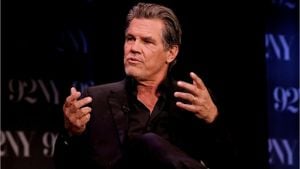Former Rep. Matt Gaetz found himself at the center of political turbulence recently, as he withdrew his nomination for Attorney General just one day after being publicly considered for the role by President-elect Donald Trump. The sudden announcement, which came on November 21, 2024, caught many by surprise, especially as it followed Gaetz's discussions with Republican senators on Capitol Hill about the nomination process. With the presidency back in Trump's hands and both chambers of Congress controlled by the GOP, Gaetz's withdrawal suggests internal divisions within the party and raises questions about his future political endeavors.
Trump quickly moved to replace Gaetz with another pick: Pam Bondi, the former Attorney General of Florida, who has been one of Trump's loyal supporters over the years. Bondi served from 2011 to 2019 and had previously defended Trump during his first Senate impeachment trial. This swift change indicates Trump's need for candidates who can weather the scrutiny typically associated with high-profile positions, especially for roles as significant as Attorney General.
Gaetz, who had faced increasing scrutiny related to allegations of involvement with underage women and drug use, stated he didn't want to become a "distraction" during the transition process. He mentioned, "There’s no time to waste on a needlessly protracted Washington scuffle." His decision to step back was perceived not only as self-preservation but also as a nod to the pressures mounting from within the Republican ranks.
Political analysts suggest this might be indicative of Trump's waning influence or, at the very least, a more cautious approach from Senate Republicans. Some lawmakers privately expressed concerns about whether they would be able to support Gaetz amid the controversies surrounding him, as leaks from ethics investigations threatened his candidacy. Even prominent figures like Senate Minority Leader Mitch McConnell publicly endorsed Gaetz's withdrawal as "appropriate," signaling potential unease about how the GOP would handle Trump's more controversial nominees.
Ronna McDaniel, former chair of the Republican National Committee, remarked on Gaetz's chances, noting he was likely destined to fail due to the scrappy nature of his political career. She's quoted saying, "It was hard for some of these senators and others. He trolled them. He went after them. He wasn't going to win a congeniality contest." This quote encapsulates the complicated sentiment surrounding Gaetz, often seen as more of a provocateur than a consensus builder within the GOP.
Notably, Gaetz's issues were multifaceted. Beyond the mounting legal troubles, he lacked experience relevant to the Attorney General's responsibilities. His past behavior alienated many fellow Republicans, including former House Speaker Kevin McCarthy, who has been openly disdainful of Gaetz since his role played in McCarthy's ousting from leadership. Such dynamics have positioned Gaetz uncomfortably among Senate colleagues, making his potential candidacy untenable.
With the withdrawal now behind him, Gaetz's future remains uncertain. He stated he doesn't plan to seek re-election to Congress, instead hinting at wanting to stay involved but from "a new perch." Some political insiders speculate he could seek other roles within the Trump administration, positions which wouldn’t require Senate confirmation – roles known to be filled by loyalists who otherwise would face challenging confirmations.
Bondi's nomination follows Gaetz's exit, and many expect her confirmation to be smoother. Observers note GOP senators may be more amenable to Bondi, as she poses significantly lower risk of controversy compared to Gaetz. Even so, the ripple effects of Gaetz's withdrawal are felt across Trump’s remaining cabinet picks, particularly with other controversial nominees like Pete Hegseth, who faces scrutiny of his own over sexual assault allegations dating back to 2017.
While Democrats have celebrated Gaetz's withdrawal, calling it “a win for the American justice system,” the shifting dynamics within the Republican Party hint at the broader adjustments Trump may need to make during his second term. Some GOP senators might be willing to confront Trump's controversial appointments, reflecting the party’s internal struggle to maintain unity amid rising public scrutiny.
For Biden’s administration and potential 2024 opponents, Gaetz's swift withdrawal serves as both validation of their critiques and exemplifies the various political pitfalls for Republicans relying on loud personalities at the forefront of their strategy. Going forward, the partial retreat of one of Trump’s most controversial figures from the spotlight might signal not just the end of potential scandalous confirmations but also mark the end of one chapter of intra-party conflict among Republicans.
Despite Gaetz's tumult, he remains engaged, recently joining Cameo, where he charges over $500 for personalized video messages, showing he isn't backing down entirely from public life. His withdrawal and Bondi's swift replacement, nevertheless, showcases the thin line Trump walks with his picks, balancing loyalty, controversy, and the possibility of rebuff from his party.
How this transition plays out will likely set the stage for the type of administration Trump can truly lead, as internal discord continues simmering under the surface. Can Trump navigate these political waters effectively, or will he flounder under the weight of divided allegiances within his own party? Only time will reveal the full impact of these nominations and the extended fallout of Gaetz's unexpected exit.



